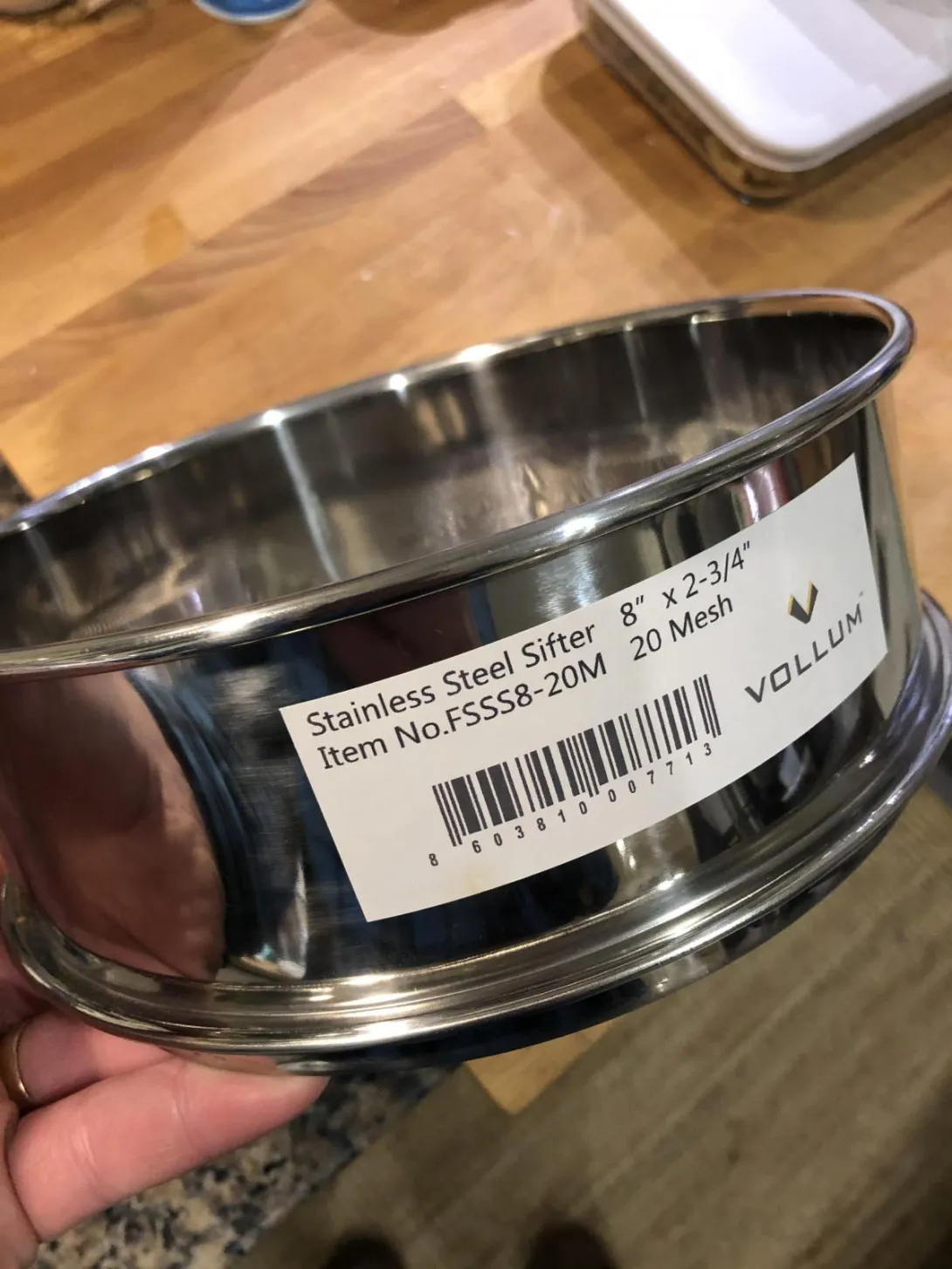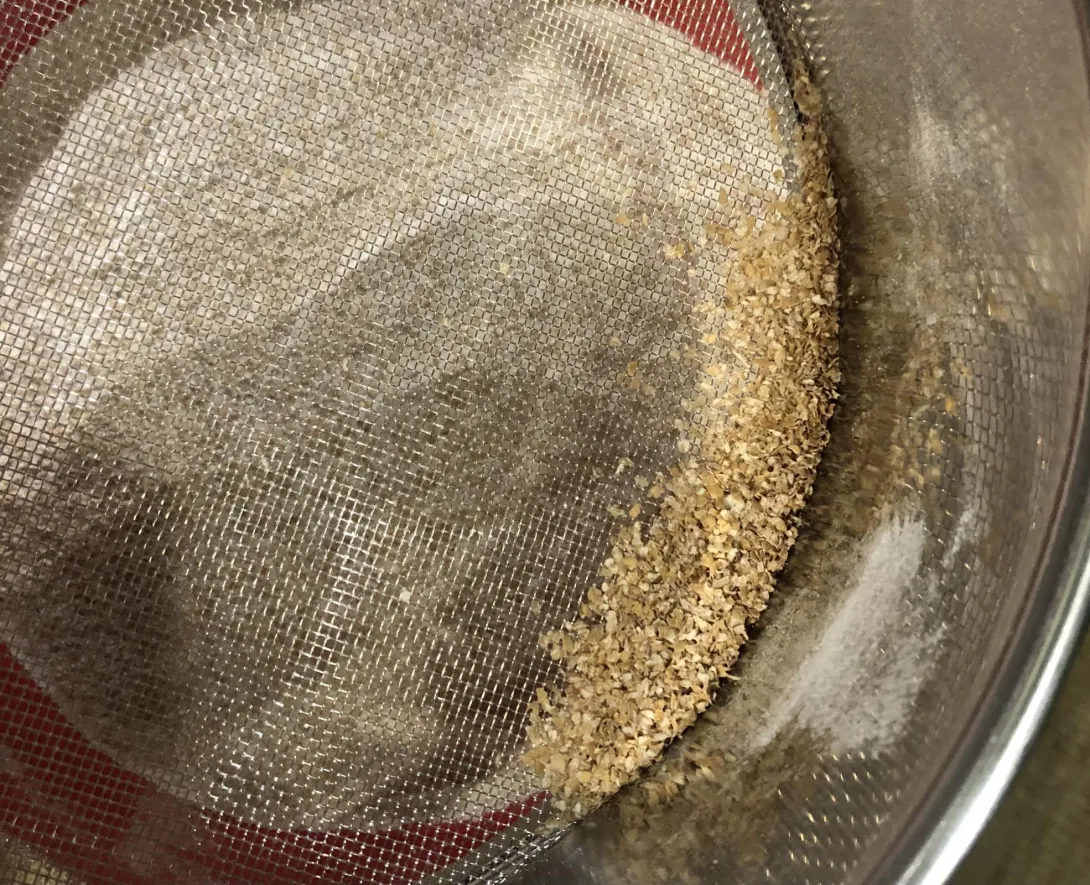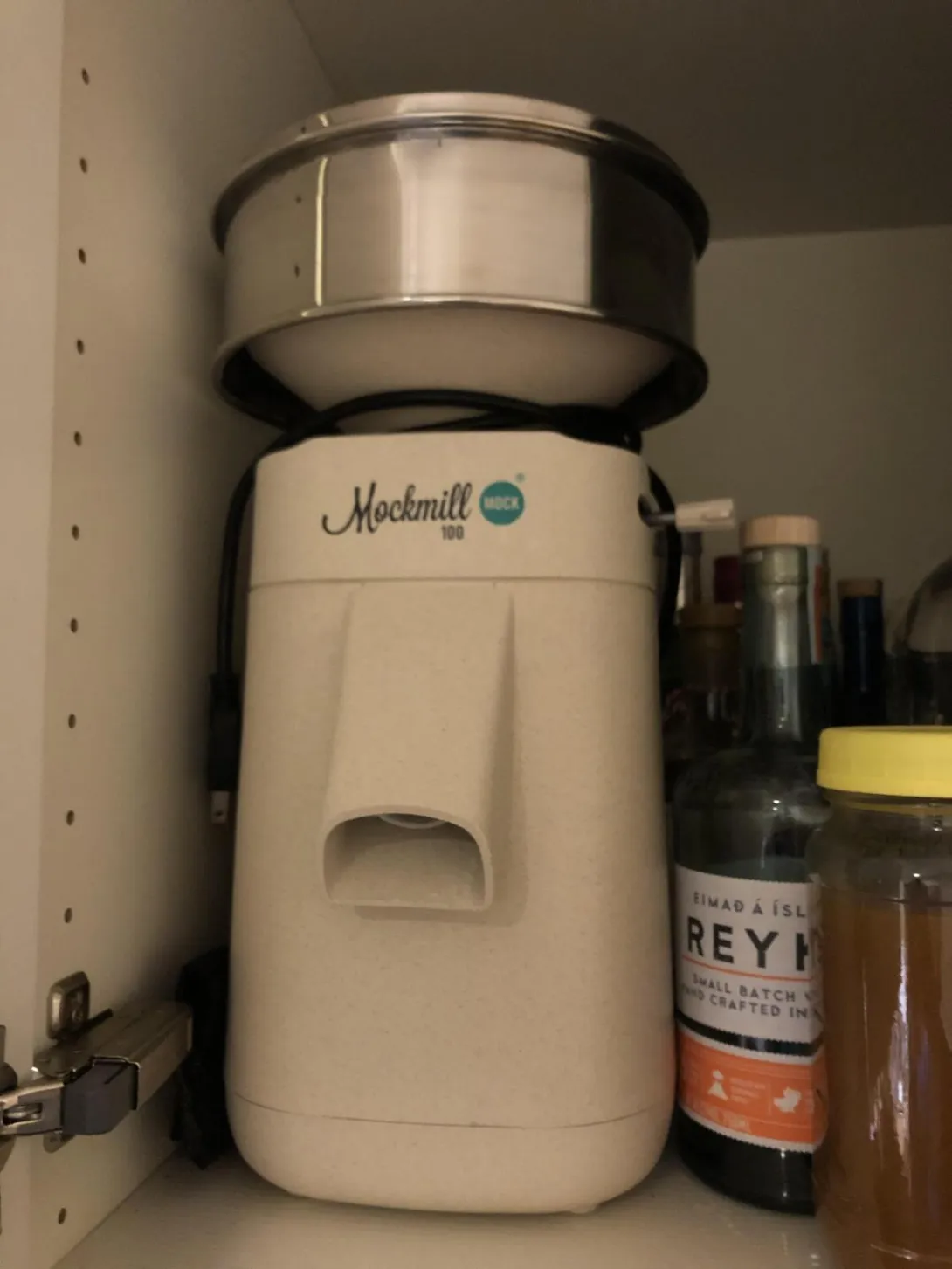EDIT: I moved this to the Grains and Milling section.
I recently got a Mockmill 100 and wanted to complement that with one or a few sieves. I am also out of storage space for my baking tools, and didn’t want to break the bank. So size and cost were factors as well.
I wanted a low count sieve to start. Something to pull big bran and stray hulls. My local mill starts at #18 mesh, so I looked in that range.
After a lot of back and forth, I decided I liked the 8” models from Vollum. They come in 3 mesh sizes, #20, #30, and #50, which is about what I want.
Long story short, after expecting to find a deal on Amazon, I finally looked elsewhere and found it at a baking supply shop in Brooklyn. Amazon sells it for $25, but BakeDeco has it for less than $12, with $3 shipping (at least to me in Maryland).
There wasn’t any discount in shipping to order 2 vs. 1, so I purchased just the #20 and it arrived today. It’s great. Sturdy, all stainless, tight mesh. No frills.
Here’s the direct link: https://www.bakedeco.com/detail.asp?id=48747
Also, for storage, this sieve fits nearly on the top of my mill. Problem solved (for now).
*EDIT AGAIN* Vollum also sells larger sizes if that's more what you're looking for. 9.5", 12", 14", 16".
Happy baking!
Kyle



I have a mill and have used some fine strainers to see what sifting is all about-no idea on size but I have a plastic bag full of wheat bran so prob close to the 20 in size.
What sieve size do most bakers feel is the most practical. I really do not want to spend hours hand sifting flour I just milled but would like a little finer-grained flour product.
How small have people sieved? I'm not even sure what terminology to use. % of clear? Yield?
Great links! Thank you. I have been looking for a long time but they are usually too costly for an experiment.
I use a #40 sifter. With my Mockmill set to fine the #40 gives me 85% extraction. Being 9" diameter I can sift very quickly.
https://breadtopia.com/store/flour-sifter-40-mesh/
I was also using whatever I had around the kitchen to remove the bigger pieces - a mesh strainer, the splatter screen for a frying pan, etc.
I have a book called Flour Lab by Adam Leonti and he seems to sift everything up to #70, and then reintroduce whatever percentage of the sifted material he deems necessary for a recipe. That seems extreme, and I don't have the time for it. Others I follow work with no extraction (the flour has all the bran and germ and endosperm and everything) with amazing results. As usual, it's a matter of what you want and are willing to work for.
I am keen on keeping my extraction high (very little removed), but also getting good results with mostly or fully whole-grain doughs. Oh, and also sourdough leavened. Sometimes those three goals conflict each other.
SO, I'm creeping forward. I'll probably add the #30 sieve next, and I'd like to use my bran for either banneton dusting, as food for the levain (longer breakdown time means less spikey pieces, so they say), or re-mill it until it's small enough to pass the test.
A couple notes on terminology:
The sieve number is the number of holes per inch. #20, #70, etc. I can't say if this holds true in the metric parts of the world.
Extraction numbers are a little counterintuitive in my mind: It's the percentage you keep, the flour that that is small enough to pass through your sieve. 85% extraction means that you lost 15% because it was too big (and it is measured by weight). Definitely the higher the sieve number, the more time you need to sift it (and the lower your extraction number), but putting fresh milled flour through my #20 took only a moment.
I hope I got all those tidbits right. Good luck!
Thank you for this. I had been thinking about doing the same thing for some loaves, in hopes of not degrading gluten formation during kneading, etc. I want to experiment with adding the coarser bits to the top of the loaf and see how that works.
I was not happy with what I found on Amazon either. Many were only 6 in diameter, and per review were flimsy, bent easily, mesh came away from the rim, etc. I also have a Mockmill, so your experience is especially helpful. From the photo, the one you found looks much more well made.
Happy sieving!
Glad it was helpful. I was also looking at the 6" sizes for a while, mostly for space constraints, and am glad I found an 8" size instead.